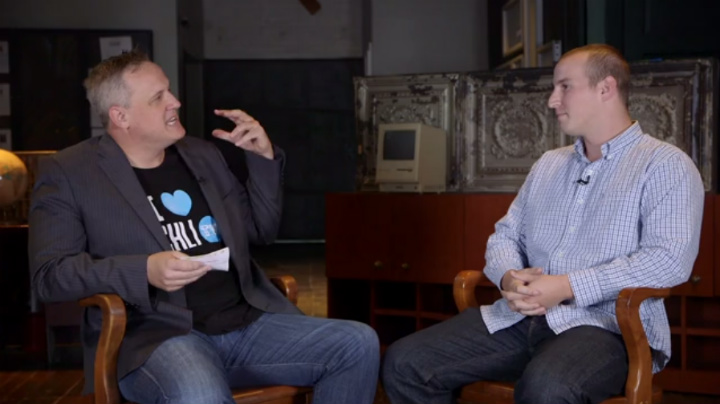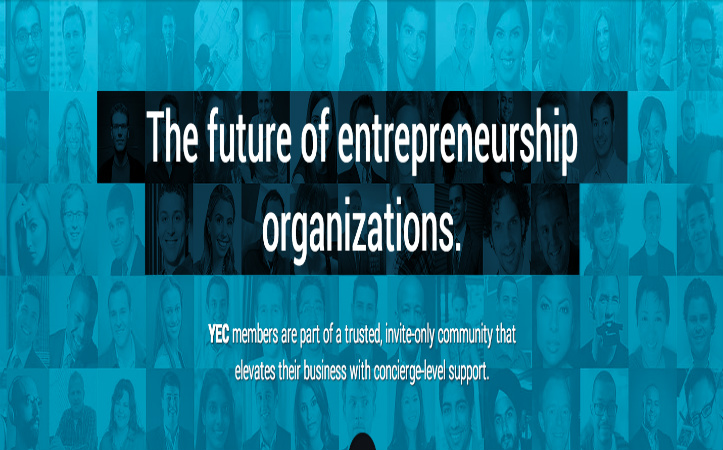 There are few things more exciting, and nerve-wracking, for a startup founder than launching a crowdfunding campaign. Will people buy in? Will this validate my efforts? What happens if no one buys? What if they do? Can I actually do this? These types of fears are completely normal for any startup entrepreneur, especially if this is your first venture. This is not that story. What happens when your crowdfunding campaign is almost irrelevant before it even launches? This is the dream, and you might be thinking that it has everything to do with having the next big product. It’s really so much more than that. That’s because there is something to say for seasoned entrepreneurs, the confidence they exude, and the targeted way that they go after a market. It’s different, and while it doesn’t necessarily mean success is imminent, it does make it seem more probable. And, we can all learn from others’ success. SmartMat, the world’s first Bluetooth connected yoga mat with AI, is one of those products. They were looking to raise $110,000 through Indiegogo, and they’ve already met their goal after one day of being online. One day. That’s all it took. But the truth of their campaign, it didn’t matter whether they received funding or not.
There are few things more exciting, and nerve-wracking, for a startup founder than launching a crowdfunding campaign. Will people buy in? Will this validate my efforts? What happens if no one buys? What if they do? Can I actually do this? These types of fears are completely normal for any startup entrepreneur, especially if this is your first venture. This is not that story. What happens when your crowdfunding campaign is almost irrelevant before it even launches? This is the dream, and you might be thinking that it has everything to do with having the next big product. It’s really so much more than that. That’s because there is something to say for seasoned entrepreneurs, the confidence they exude, and the targeted way that they go after a market. It’s different, and while it doesn’t necessarily mean success is imminent, it does make it seem more probable. And, we can all learn from others’ success. SmartMat, the world’s first Bluetooth connected yoga mat with AI, is one of those products. They were looking to raise $110,000 through Indiegogo, and they’ve already met their goal after one day of being online. One day. That’s all it took. But the truth of their campaign, it didn’t matter whether they received funding or not.

Neyma Jahan, co-founder of SmartMat
“It doesn’t matter if we get funding,” said Neyma Jahan, co-founder of SmartMat. “We’re building it anyway.” That’s because Neyma and his co-founders are all seasoned entrepreneurs. They focused on building a truly awesome product, and they all have had enough success to fund the product development over the last year themselves. Their confidence also comes from being “blindsided by distributors” wanting to carry their product. “There is a huge recognition of market demand for a product like SmartMat. Soon as we get this crowdfunding thing out of the way, we’re just putting our heads down to go make the most awesome product possible,” said Jahan. “The crowdfunding campaign is just step one of the process.” Neyma wasn’t implying that the campaign wasn’t important; he was more emphasizing the bigger picture of their plan, which was his advice to other startup entrepreneurs. “You need to see your project from where you are all the way to the end goal,” he said. He explained that it’s about proper planning. You can’t just say, “And here’s where we get a million users.” You need to have an idea of how you’re going to do that. You can see their planning at work through SmartMat. The team has been marketing their product for quite some time, telling people about their upcoming campaign through advertising and a solid media strategy. They had a Facebook page beginning in May, and today they have over 7,900 Likes. They’ve done everything right, and their fast funding on Indiegogo is further testament to that. So, why would they choose this route? If they already have distributors lining up, why waste time with crowdfunding? “We’re already self funded, but there is no better way to reach directly to consumers,” explained Jahan. “We also think it’s very beneficial because it involves the consumer in the process. We want to build for the needs of the user.” They’re already taking the feedback they’ve received and incorporating it into their final product, because this is the big one for them. “We’re in this to go build a company that can sell for a billion dollars,” said Jahan.

Sam Marks, co-founder of SmartMat
While they’ve had success, they haven’t had billion dollar success yet though their co-founder Sam Marks just had close to a $100 million exit (interestingly enough) for an e-cig company called SKYCIG. (Sam has since quit smoking and has taken up yoga with his co-founders.) Do you think this will be the big one for these three yogis? The product itself is quite ingenious. It’s essentially your own private yoga coach, built in to your yoga mat. It can correct your form and monitor your progress, or roll it up and take it to a group class in a silent/visual only mode. In the world of big data where we are quantifying absolutely everything we possibly can from measuring the arc on shooting a free throw to pedometers in our sneakers to cups that keep track of how much we’re hydrating, that type of data has been extended to your yoga practice. Collecting the data wasn’t the hard part, but rather analyzing it and creating hardware that could roll up. “If you want me to geek out on you for a minute, I can,” laughed Neyma. He explained that the ideal yoga pose is different for every person. The mat has to essentially be smart enough to know the different ratios of alignment for a 6’4” man as opposed to a 5’4” woman. “We’ve been able to go and instruct what is the ideal pose for a particular body type,” said Jahan, “Ten different people step on to SmartMat, and it’s going to know the perfect downward dog is going to be different. We’re basically doing mad scientist stuff here.” Is all this mad science enough to get them a valuation of a billion dollars? If their Indiegogo campaign is any indication, they’re well on their way to making that happen and while having funding for their product is a huge help for their success, their experience is just as valuable, if not more so. They have a plan, and they’re executing that plan to perfection. We can all take a few lessons from these entrepreneurs in recognizing the vision they have for their product and their efforts to see it through. Check out their Indiegogo campaign
here and see their product demonstration video below.
 There are few things more exciting, and nerve-wracking, for a startup founder than launching a crowdfunding campaign. Will people buy in? Will this validate my efforts? What happens if no one buys? What if they do? Can I actually do this? These types of fears are completely normal for any startup entrepreneur, especially if this is your first venture. This is not that story. What happens when your crowdfunding campaign is almost irrelevant before it even launches? This is the dream, and you might be thinking that it has everything to do with having the next big product. It’s really so much more than that. That’s because there is something to say for seasoned entrepreneurs, the confidence they exude, and the targeted way that they go after a market. It’s different, and while it doesn’t necessarily mean success is imminent, it does make it seem more probable. And, we can all learn from others’ success. SmartMat, the world’s first Bluetooth connected yoga mat with AI, is one of those products. They were looking to raise $110,000 through Indiegogo, and they’ve already met their goal after one day of being online. One day. That’s all it took. But the truth of their campaign, it didn’t matter whether they received funding or not.
There are few things more exciting, and nerve-wracking, for a startup founder than launching a crowdfunding campaign. Will people buy in? Will this validate my efforts? What happens if no one buys? What if they do? Can I actually do this? These types of fears are completely normal for any startup entrepreneur, especially if this is your first venture. This is not that story. What happens when your crowdfunding campaign is almost irrelevant before it even launches? This is the dream, and you might be thinking that it has everything to do with having the next big product. It’s really so much more than that. That’s because there is something to say for seasoned entrepreneurs, the confidence they exude, and the targeted way that they go after a market. It’s different, and while it doesn’t necessarily mean success is imminent, it does make it seem more probable. And, we can all learn from others’ success. SmartMat, the world’s first Bluetooth connected yoga mat with AI, is one of those products. They were looking to raise $110,000 through Indiegogo, and they’ve already met their goal after one day of being online. One day. That’s all it took. But the truth of their campaign, it didn’t matter whether they received funding or not. 










